26.9.08
some news
23.9.08
Spice Market, Istanbul
What does it smell like in Turkey?
And what do they eat?
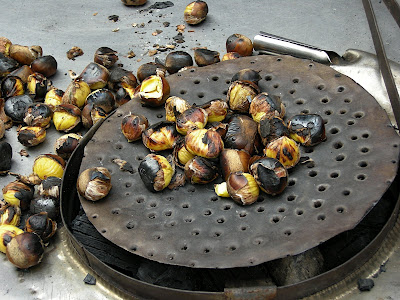

The chestnut and corn stand are everywhere on the streets. They're diffusing nice smells.
Off course we cannot miss the spice market.
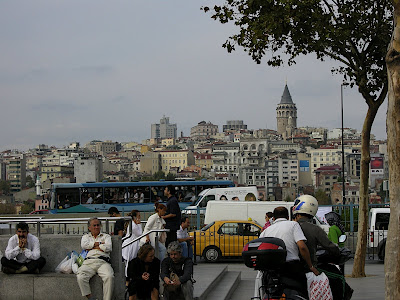
Fish market is located along the river. The diffuser of the smell of fish!
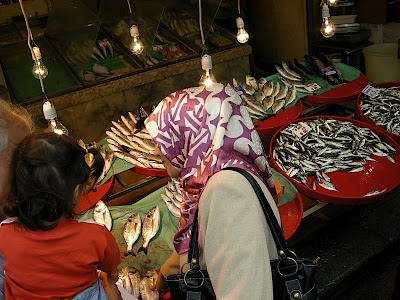
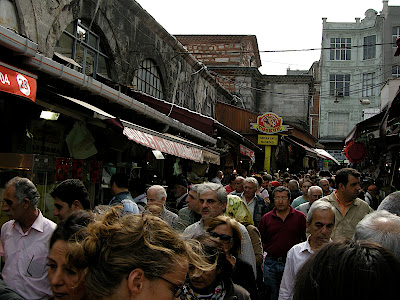

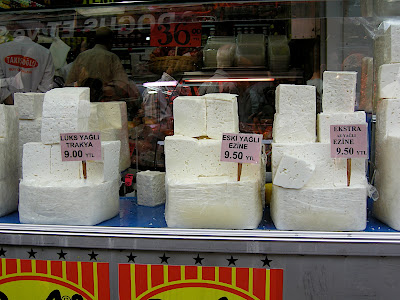


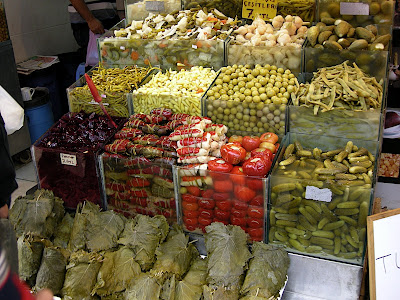

What do you think they are?
They're aubergine!
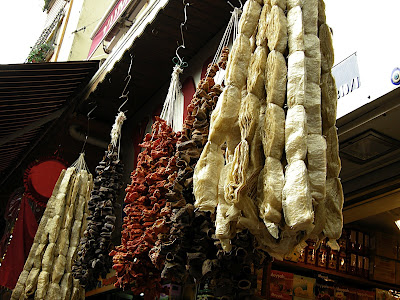
The yellow one are intestant used for making sausages. The red ones are tomato's.
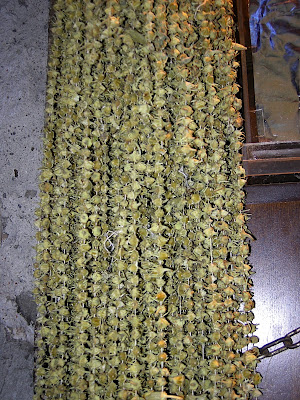
Okra flowers

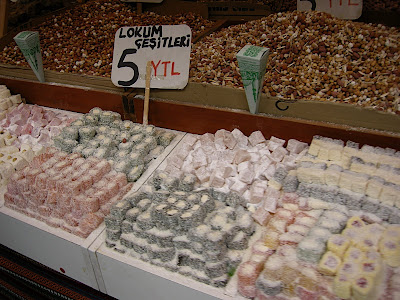

Eau de cologne is a part of service for the customers. You find it often at the shops.
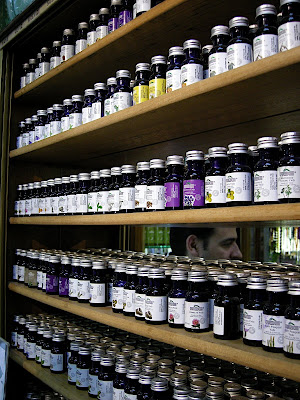
Cold press essential oils. Many sorts.
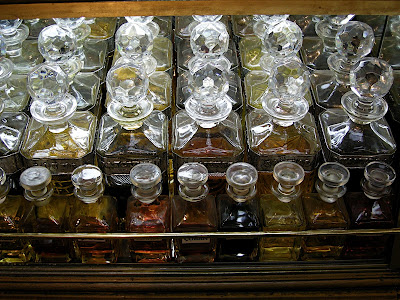
They had not only the aromaterous like sandal wood and musk, but also the composed ones - one of their perfumes was labeld "Channel 5"
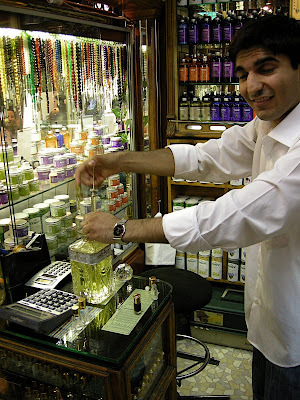
It's like being in Egypt. I emptied my wallet again...


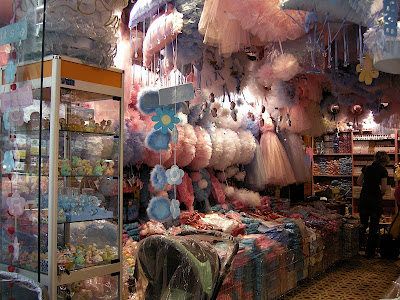
Wonderful baby-shop.


Fishing on the bridge in the heart of the city Istanbul.

And what do they eat?
The chestnut and corn stand are everywhere on the streets. They're diffusing nice smells.
Off course we cannot miss the spice market.
Fish market is located along the river. The diffuser of the smell of fish!
What do you think they are?
They're aubergine!
The yellow one are intestant used for making sausages. The red ones are tomato's.
Okra flowers
Eau de cologne is a part of service for the customers. You find it often at the shops.
Cold press essential oils. Many sorts.
They had not only the aromaterous like sandal wood and musk, but also the composed ones - one of their perfumes was labeld "Channel 5"
It's like being in Egypt. I emptied my wallet again...
Wonderful baby-shop.
Fishing on the bridge in the heart of the city Istanbul.
Body Odor No. 5 - making extracts -
The ingredients and the process of extraction
cumin
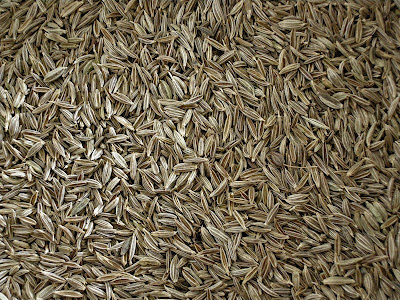
garlic
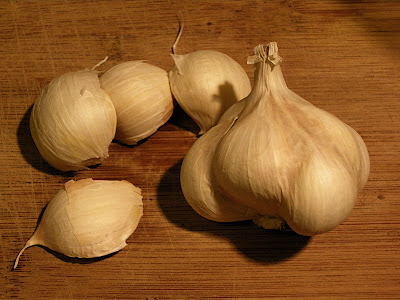
mushroom

onion
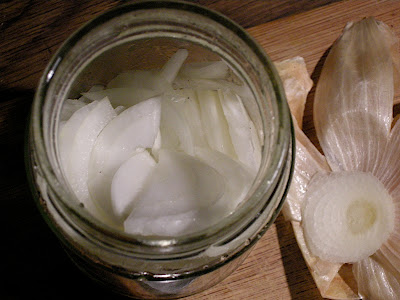
oil maceration (cooking the ingredients at 70 degrees in oil)
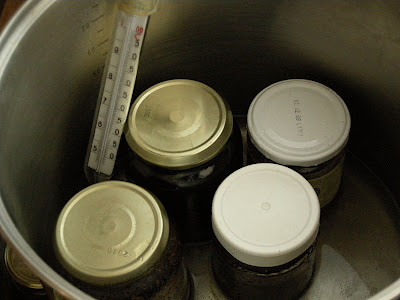
filtering onion
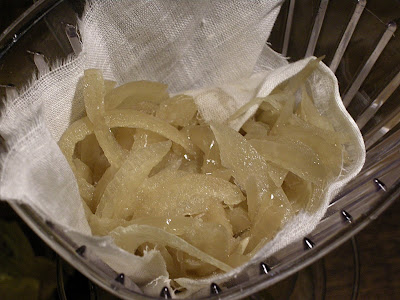
filtering
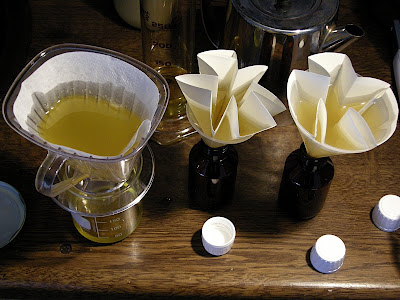
These ingredients above are processed in Holland.
From here the process took place in Istanbul, Turkey. The base components were already made in Holland, but I wanted to add a 'Turkish' touch to it. So I've extracted some food ingredients that are commonly used in the Turkish cuisine.
The point here is to select the ingredients that are comparable to 'base note' in the perfumery. For example, mint is used a lot in the Turkish kitchen but I have avoided it because it's too much 'top note'. It wouldn't appear in the body odor.
kebab
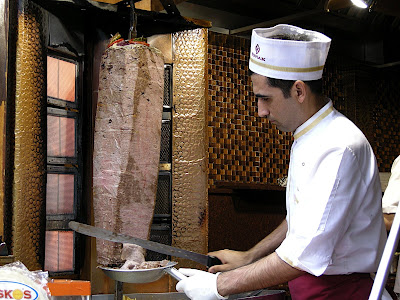
kebab in oil (maceration in progress)
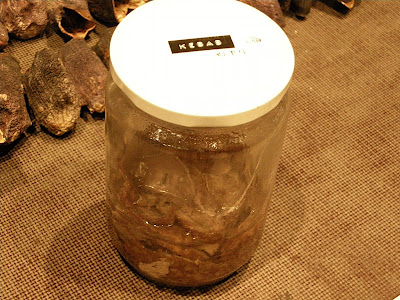
Turkish parsleyhttp://www.blogger.com/img/gl.link.gif

Turkish parsley in oil
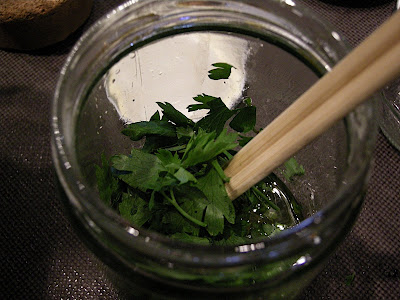
filtering sumac

cumin
garlic
mushroom
onion
oil maceration (cooking the ingredients at 70 degrees in oil)
filtering onion
filtering
These ingredients above are processed in Holland.
From here the process took place in Istanbul, Turkey. The base components were already made in Holland, but I wanted to add a 'Turkish' touch to it. So I've extracted some food ingredients that are commonly used in the Turkish cuisine.
The point here is to select the ingredients that are comparable to 'base note' in the perfumery. For example, mint is used a lot in the Turkish kitchen but I have avoided it because it's too much 'top note'. It wouldn't appear in the body odor.
kebab
kebab in oil (maceration in progress)
Turkish parsleyhttp://www.blogger.com/img/gl.link.gif
Turkish parsley in oil
filtering sumac
Body Odor No. 5 - composition of body odor - in Istanbul
Date& Time: 20.09.2008, 20:00 - 23:00
Place: Garaj Istanbul, Turkey
Event: Citysense
Body Odor No.5
- reconstruction of the body odor -
Maki Ueda (NL/J)
[Performance Installation – bar/lounge area, 3h]
For Japanese Dutch artist scent and smells (the olfactory) are a “new” medium. She creates scents which capture childhood, identity, a mood or a historical event. Within this context a person’s body odor can be used to identify the person, and is as distinctive and traceable as a fingerprint. The character of the smell is determined by many conditions, such as for example diet: we smell of, what we eat. So the Europeans are supposed to smell like cheese, and the Japanese like soy sauce. During the event Maki Ueda will, with her unique combination of skills and the mini-laboratory setup, extract the smells of different foodstuffs. The audience will then witness the live process of composing a "perfume" with the latter ingredients, which will replicate body odors, personal smell tags, if you will.
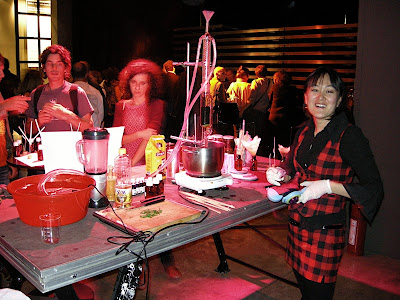
The moment of composing the perfume

Smell Bar

Are you fed up with your own body odor and do you just want to smell like someone else? Luckily enough you can, with this perfume just released from the fragrance house Maki Ueda.
Its scent is gourmet, but amazingly animalic at the same time. Luxuriously composed mainly with Dutch fresh cow cheese extract, onion extract , cumin extract, and top quality Japanese fish extract. All the ingredients are organic, synthetic-free. Purely hand-manufactured with the extra care.
Ideal all-day perfume for both men and women (18 +), applicable to all parts of the body. Also good for the sensitive skin (vegetable oil base). Not for the internal use.
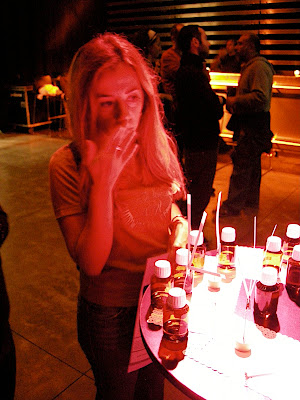

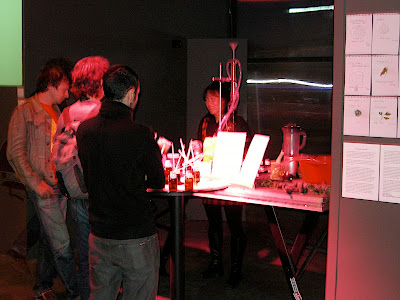
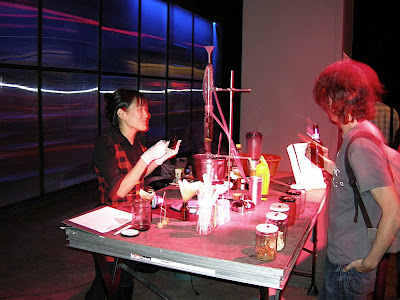
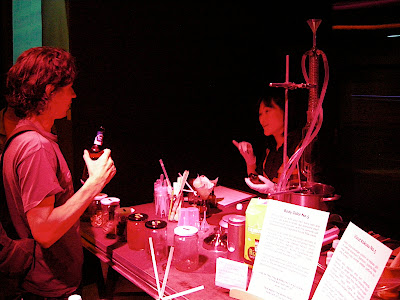


After the event, 50 bottles of composed perfume are given as a present to the audience.
the extracts used for composing Body Odor No. 5:
* Made in Holland [all self-made extracts]
Other related work from the event...
Urbanopathic Confection
by Wietske Maas
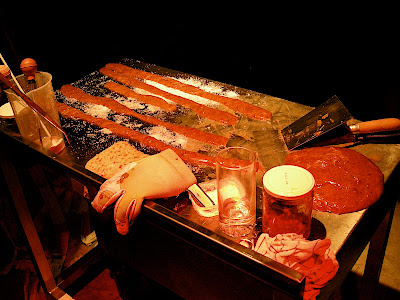
She is a great gastronomic artist! She has collected the water, herbs, and flowers in Amsterdam, and turned them into candy referring to the Turkish tradition. It tasted nice, and interesting work.
Place: Garaj Istanbul, Turkey
Event: Citysense
Body Odor No.5
- reconstruction of the body odor -
Maki Ueda (NL/J)
[Performance Installation – bar/lounge area, 3h]
For Japanese Dutch artist scent and smells (the olfactory) are a “new” medium. She creates scents which capture childhood, identity, a mood or a historical event. Within this context a person’s body odor can be used to identify the person, and is as distinctive and traceable as a fingerprint. The character of the smell is determined by many conditions, such as for example diet: we smell of, what we eat. So the Europeans are supposed to smell like cheese, and the Japanese like soy sauce. During the event Maki Ueda will, with her unique combination of skills and the mini-laboratory setup, extract the smells of different foodstuffs. The audience will then witness the live process of composing a "perfume" with the latter ingredients, which will replicate body odors, personal smell tags, if you will.
The moment of composing the perfume
Smell Bar
Are you fed up with your own body odor and do you just want to smell like someone else? Luckily enough you can, with this perfume just released from the fragrance house Maki Ueda.
Its scent is gourmet, but amazingly animalic at the same time. Luxuriously composed mainly with Dutch fresh cow cheese extract, onion extract , cumin extract, and top quality Japanese fish extract. All the ingredients are organic, synthetic-free. Purely hand-manufactured with the extra care.
Ideal all-day perfume for both men and women (18 +), applicable to all parts of the body. Also good for the sensitive skin (vegetable oil base). Not for the internal use.
After the event, 50 bottles of composed perfume are given as a present to the audience.
the extracts used for composing Body Odor No. 5:
* Made in Holland [all self-made extracts]
- saurkraut extract (ECO)
- onion extract (ECO)
- cumin extract (ECO)
- garlic extract (ECO)
- Dutch cheese extract(Belegen ECO)
- seaweed extract (hijiki)
- fish extract (bonito fish flakes)
- etc
- Turkish tea extract
- Turkish parsley extract
- kebab extract
- sumac extract
- etc
Other related work from the event...
Urbanopathic Confection
by Wietske Maas
She is a great gastronomic artist! She has collected the water, herbs, and flowers in Amsterdam, and turned them into candy referring to the Turkish tradition. It tasted nice, and interesting work.
Labels:
[Body Odor No.5],
event,
exhibition,
inspiring works,
performance
16.9.08
CitySense @ Garaj, Istanbul (announcement)
CitySense: Surveillance, Secrecy, Security, Control
[A playful evening pondering media, control, surveillance, secrecy and art in urban environments]
Curator: Nat Muller in collaboration with NOMAD
Introduction
It is no big secret that urban centres have become sites of surveillance and control. Gone are the days that the urban city dweller could carelessly drift – as the 19th Century flaneur, strolling from one area to the other, and then disappear anonymously into the crowds. As our urban experience might have become more anonymous in regard to social interaction, our behaviour – how we move, what we see, hear, taste and smell - is becoming more regulated, watched and controlled. Anonymity it seems, is no longer an option. Our urban sensibilities are often directed, mediated and pre-programmed, either by security measures or by other overt or hidden codes of conduct. It is no coincidence then that how we consciously sense our cities – our “City Sense” – ultimately defines how we position ourselves as citizens.
CitySense offers a playful interpretation on how to actively engage your urban senses and reveals the hidden and questions the exposed in an evening choc-a-bloc with video screenings, live food and smell installations, live audio-visual performances, and party to close off the night. It also is an event where the practices of Dutch artists (predominantly from Rotterdam) and Turkish artists (predominantly from Istanbul) come together. The event is followed by a panel discussion on the 21st of September with the participating artists.
Program Day1: CitySense 20 September: 20.00-1.30am
20.00: doors open
20.00 – 23.00: Body Odor No 5 - Maki Ueda; Urbanopathic Confection - Wietske Maas, My Pocket – Burak Arikan [on-going lounge/bar area]
20.30-21.15: video screenings: Mediashed “The Duellists”, Nicolas Provost “Plot Point”, Benny Nemerofsky Ramsay & Pascal Lievre “Patriotic”, Melse, Venet, Geurts, van Loenen “Published Security”, Basak kaptan “Terrace”, Efe Hizir “Bidi”, Dilara Kurtoglu,”Stimulasyon”, Denizcan Yüzgül “Aquarium” [main stage]
21.30 – 22.00: 20-20000: The Infra Ultra Sound Society - Sasker Scheeerder & Radboud Mens [main stage]
22.15 – 22.45: LSP - Edwin van der Heide [main stage]
22.45 – 23.15: Koray Tahiroglu [main stage]
23.15 – 1.30am: Not at Home [main stage]
Body Odor No.5 - Maki Ueda (NL/J)
[Performance Installation – bar/lounge area, 3h]
For Japanese Dutch artist scent and smells (the olfactory) are a “new” medium. She creates scents which capture childhood, identity, a mood or a historical event. Within this context a person’s body odor can be used to identify the person, and is as distinctive and traceable as a fingerprint. The character of the smell is determined by many conditions, such as for example diet: we smell of, what we eat. So the Europeans are supposed to smell like cheese, and the Japanese like soy sauce. During the event Maki Ueda will, with
her unique combination of skills and the mini-laboratory setup, extract the smells of different foodstuffs. The audience will then witness the live process of composing a "perfume" with the latter ingredients, which will replicate body odors, personal smell tags, if you will.
Bio Maki Ueda (NL/J)
Is an artist who in her current practice incorporates the olfactory sense in art. She is one of the few artists using smell as a creative medium. She has developed a unique combination of chemical and kitchen skills in order to extract scents of daily life, ranging from food, space, to bodily scents. She has participated art exhibitions concerning smell, such as “There Ever Was” (U.K., 2008).Previously Maki Ueda worked in the field of new media art. Her well-known work “Hole in the Earth” (2003) is a permanent public installation with realtime video, connecting Indonesia and Holland. She studied media art at The Environmental Information Studies Department (B.A., 1997) and at The Master School of Media and Governance (M.A., 1999), Keio University, Japan. She also attended courses at the Grasse Institute of Perfumery in France.
artist's up-to-date(blog) [EN]: http://scent-lab.blogspot.com
Program Day2 CitySense: “Security’s Spectacle: The Seen and The Unseen” Sunday 21th September
Time: 15.00 – 17.30
Format: audio-visual presentations, panel debate with moderator (Nat Muller/Basak Senova)
Presentations by: Lemi Baruh (TR), Maki Ueda (NL/J), Wietske Maas (NL/AU), Sasker Scheerder (NL)
Moderated and introduced by Nat Muller (independent curator) and Basak Senova (NOMAD)
In cities in The Netherlands, as well as in Istanbul, we see an increase in the “spectacle of security”: more police, more metal detectors, more bag&body searches, more surveillance cameras, etc. This visual performance of surveillance and security significantly changes the outlook of our cities, but also how we experience them, conduct ourselves in and through these controlled zones, as well as how our conceptions of private and public are affected. Within the current obsession of assessing and exposing (=visualising) that which cannot be seen, i.e. the threat, how do the senses fare which are invisible, such as sound, smell and taste? Are they part and parcel of the system of control, and is what we hear, smell and taste pre-configured. Or can we, as is the case with counter-images, always find a system hack?
[A playful evening pondering media, control, surveillance, secrecy and art in urban environments]
Curator: Nat Muller in collaboration with NOMAD
Introduction
It is no big secret that urban centres have become sites of surveillance and control. Gone are the days that the urban city dweller could carelessly drift – as the 19th Century flaneur, strolling from one area to the other, and then disappear anonymously into the crowds. As our urban experience might have become more anonymous in regard to social interaction, our behaviour – how we move, what we see, hear, taste and smell - is becoming more regulated, watched and controlled. Anonymity it seems, is no longer an option. Our urban sensibilities are often directed, mediated and pre-programmed, either by security measures or by other overt or hidden codes of conduct. It is no coincidence then that how we consciously sense our cities – our “City Sense” – ultimately defines how we position ourselves as citizens.
CitySense offers a playful interpretation on how to actively engage your urban senses and reveals the hidden and questions the exposed in an evening choc-a-bloc with video screenings, live food and smell installations, live audio-visual performances, and party to close off the night. It also is an event where the practices of Dutch artists (predominantly from Rotterdam) and Turkish artists (predominantly from Istanbul) come together. The event is followed by a panel discussion on the 21st of September with the participating artists.
Program Day1: CitySense 20 September: 20.00-1.30am
20.00: doors open
20.00 – 23.00: Body Odor No 5 - Maki Ueda; Urbanopathic Confection - Wietske Maas, My Pocket – Burak Arikan [on-going lounge/bar area]
20.30-21.15: video screenings: Mediashed “The Duellists”, Nicolas Provost “Plot Point”, Benny Nemerofsky Ramsay & Pascal Lievre “Patriotic”, Melse, Venet, Geurts, van Loenen “Published Security”, Basak kaptan “Terrace”, Efe Hizir “Bidi”, Dilara Kurtoglu,”Stimulasyon”, Denizcan Yüzgül “Aquarium” [main stage]
21.30 – 22.00: 20-20000: The Infra Ultra Sound Society - Sasker Scheeerder & Radboud Mens [main stage]
22.15 – 22.45: LSP - Edwin van der Heide [main stage]
22.45 – 23.15: Koray Tahiroglu [main stage]
23.15 – 1.30am: Not at Home [main stage]
Body Odor No.5 - Maki Ueda (NL/J)
[Performance Installation – bar/lounge area, 3h]
For Japanese Dutch artist scent and smells (the olfactory) are a “new” medium. She creates scents which capture childhood, identity, a mood or a historical event. Within this context a person’s body odor can be used to identify the person, and is as distinctive and traceable as a fingerprint. The character of the smell is determined by many conditions, such as for example diet: we smell of, what we eat. So the Europeans are supposed to smell like cheese, and the Japanese like soy sauce. During the event Maki Ueda will, with
her unique combination of skills and the mini-laboratory setup, extract the smells of different foodstuffs. The audience will then witness the live process of composing a "perfume" with the latter ingredients, which will replicate body odors, personal smell tags, if you will.
Bio Maki Ueda (NL/J)
Is an artist who in her current practice incorporates the olfactory sense in art. She is one of the few artists using smell as a creative medium. She has developed a unique combination of chemical and kitchen skills in order to extract scents of daily life, ranging from food, space, to bodily scents. She has participated art exhibitions concerning smell, such as “There Ever Was” (U.K., 2008).Previously Maki Ueda worked in the field of new media art. Her well-known work “Hole in the Earth” (2003) is a permanent public installation with realtime video, connecting Indonesia and Holland. She studied media art at The Environmental Information Studies Department (B.A., 1997) and at The Master School of Media and Governance (M.A., 1999), Keio University, Japan. She also attended courses at the Grasse Institute of Perfumery in France.
artist's up-to-date(blog) [EN]: http://scent-lab.blogspot.com
Program Day2 CitySense: “Security’s Spectacle: The Seen and The Unseen” Sunday 21th September
Time: 15.00 – 17.30
Format: audio-visual presentations, panel debate with moderator (Nat Muller/Basak Senova)
Presentations by: Lemi Baruh (TR), Maki Ueda (NL/J), Wietske Maas (NL/AU), Sasker Scheerder (NL)
Moderated and introduced by Nat Muller (independent curator) and Basak Senova (NOMAD)
In cities in The Netherlands, as well as in Istanbul, we see an increase in the “spectacle of security”: more police, more metal detectors, more bag&body searches, more surveillance cameras, etc. This visual performance of surveillance and security significantly changes the outlook of our cities, but also how we experience them, conduct ourselves in and through these controlled zones, as well as how our conceptions of private and public are affected. Within the current obsession of assessing and exposing (=visualising) that which cannot be seen, i.e. the threat, how do the senses fare which are invisible, such as sound, smell and taste? Are they part and parcel of the system of control, and is what we hear, smell and taste pre-configured. Or can we, as is the case with counter-images, always find a system hack?
13.9.08
Perfect Japanese Woman (Eau de Parfum) @ opening OTENBA
Eau de Parfum Perfect Japanese Woman
by Maki Ueda
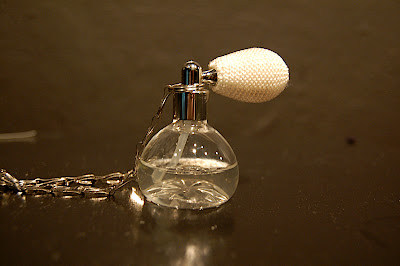
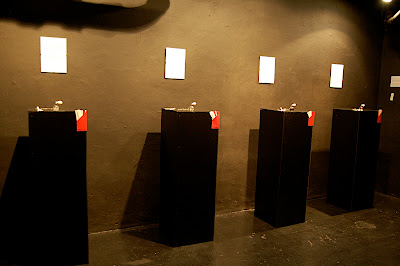
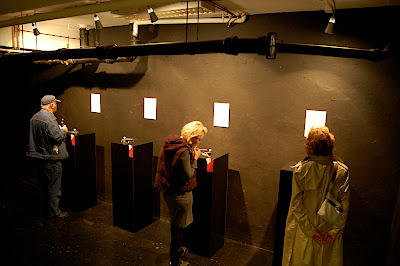

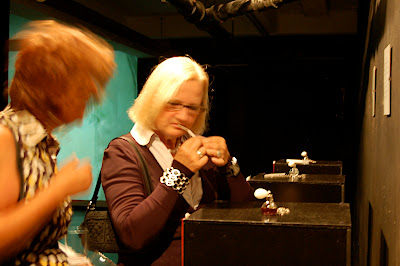
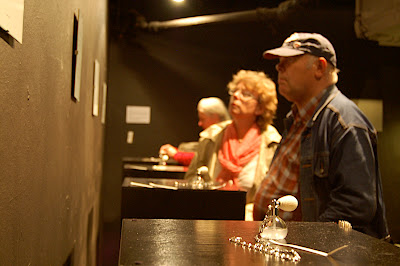

No. 1
Nukamiso
- the scent of motherhood -
There is an expression about housewives in Japanese: "A woman that stinks like Nukamiso". It's an expression for the women who are so much stuck in the family life that they are not attractive as women anymore.
Nukamiso is salted rice-bran paste for making pickles called Nukazuke. Every family used to have a bucket that looks like a sauerkraut bucket. The Nukamiso paste needs daily maintenance. Therefor the hands of the housewives used to stink pretty sour like Nukazuke . Mentioning such a smell was used as a metaphor for insulting housewives.
But that is slowly becoming the past. Nowadays, Nukazuke became something to buy at the supermarket, so no woman knows anymore how to make Nukazuke at home. In the near future women that stink like Nukamiso would not be seen with the traditional sense, but would be recognized as super feminine and sexy women! Don't be too late. When you serve Nukazuke to your husband, make sure that you spray this perfume on your hands, so that he thinks that you've made it yourself. This is the eternal scent for motherhood.
No. 2
Tatami
- to become as young and fresh as new tatami -
A Japanese proverb says: "Wives and tatami's are better when they are new."
Tatami is the traditional Japanese carpet and floor woven from rush. The traditional house is made with tatami and shoji (rice paper doors and windows). New tatami is always preferred because it's clean and also giving the fresh and comforting smell of rush. However the smell disappears as time goes by. That has become a metaphor for a wife.
You would question: is it only a wife that is better when it's fresh? How about a husband then? Let's leave that question aside for a moment. If you want to feel fresher and younger as a woman, this perfume is ideal for you. It's the perfume for any generations.
Most of the Japanese women give up their jobs and become pure housewives when they get married or when they get children.
No. 3
Miso Soup
- the scent of a woman in the kitchen -
The happy morning is to wake up with the sound of the kitchen and the smell of miso soup ミ that's the traditional image of a family. Japanese people eat a warm meal in the morning. Perhaps it has already become the past.
If you want to wake up your family with such an elegance, this perfume can help you. This Miso Soup Perfume can be used as a room spray. The family will wake up with the happiness resulting from the smell of Miso Soup.
This perfume is also useful for fooling the nose of your husband, in case you want to pretend that you've been working all day in the kitchen.
No. 4
Soap
- the scent of pureness and cleanness -
One of the most important morning rituals for Japanese high school girls is to wash their hair just to scent the hair with the smell of shampoo. If you don't have time to take a shower in the morning, you can scent your hair and your body with this perfume: the smell of the soap.
Japanese men prefer women that represent pureness and cleanness. Don't worry if you aren't. This perfume will also emphasize the attractive contrast in yourself.
Japanese people like the smell of soap very much. Women often purchase perfumes that smell like a soap.
Opening of the exhibition OTENBA @ Roodkapje, Rotterdam
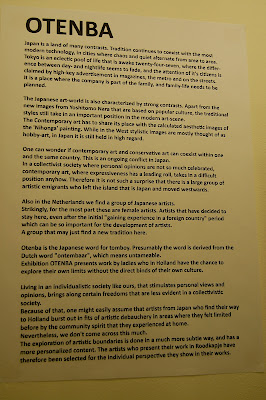



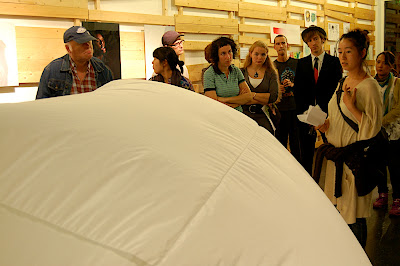
by Maki Ueda
No. 1
Nukamiso
- the scent of motherhood -
There is an expression about housewives in Japanese: "A woman that stinks like Nukamiso". It's an expression for the women who are so much stuck in the family life that they are not attractive as women anymore.
Nukamiso is salted rice-bran paste for making pickles called Nukazuke. Every family used to have a bucket that looks like a sauerkraut bucket. The Nukamiso paste needs daily maintenance. Therefor the hands of the housewives used to stink pretty sour like Nukazuke . Mentioning such a smell was used as a metaphor for insulting housewives.
But that is slowly becoming the past. Nowadays, Nukazuke became something to buy at the supermarket, so no woman knows anymore how to make Nukazuke at home. In the near future women that stink like Nukamiso would not be seen with the traditional sense, but would be recognized as super feminine and sexy women! Don't be too late. When you serve Nukazuke to your husband, make sure that you spray this perfume on your hands, so that he thinks that you've made it yourself. This is the eternal scent for motherhood.
No. 2
Tatami
- to become as young and fresh as new tatami -
A Japanese proverb says: "Wives and tatami's are better when they are new."
Tatami is the traditional Japanese carpet and floor woven from rush. The traditional house is made with tatami and shoji (rice paper doors and windows). New tatami is always preferred because it's clean and also giving the fresh and comforting smell of rush. However the smell disappears as time goes by. That has become a metaphor for a wife.
You would question: is it only a wife that is better when it's fresh? How about a husband then? Let's leave that question aside for a moment. If you want to feel fresher and younger as a woman, this perfume is ideal for you. It's the perfume for any generations.
Most of the Japanese women give up their jobs and become pure housewives when they get married or when they get children.
No. 3
Miso Soup
- the scent of a woman in the kitchen -
The happy morning is to wake up with the sound of the kitchen and the smell of miso soup ミ that's the traditional image of a family. Japanese people eat a warm meal in the morning. Perhaps it has already become the past.
If you want to wake up your family with such an elegance, this perfume can help you. This Miso Soup Perfume can be used as a room spray. The family will wake up with the happiness resulting from the smell of Miso Soup.
This perfume is also useful for fooling the nose of your husband, in case you want to pretend that you've been working all day in the kitchen.
No. 4
Soap
- the scent of pureness and cleanness -
One of the most important morning rituals for Japanese high school girls is to wash their hair just to scent the hair with the smell of shampoo. If you don't have time to take a shower in the morning, you can scent your hair and your body with this perfume: the smell of the soap.
Japanese men prefer women that represent pureness and cleanness. Don't worry if you aren't. This perfume will also emphasize the attractive contrast in yourself.
Japanese people like the smell of soap very much. Women often purchase perfumes that smell like a soap.
Opening of the exhibition OTENBA @ Roodkapje, Rotterdam
Subscribe to:
Comments (Atom)